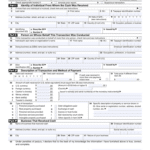IRS Form 8300 If you engage in a business or trade that receives large cash payments, understanding IRS Form 8300 – what it is and why is it important – is crucial. The IRS mandates “each person engaged in a trade or business who, in the course of that trade or business, receives more than
IRS Forms Explained
What To Do If You Underpaid The IRS
It happens to the best of us. We carefully prepare for an appointment with our accountant or we gather all our documents and go through the process of preparing our tax returns. A short while later we receive a notice from the IRS letting us know that we underreported our taxable income. Now what? Our
Understanding IRS Audit Notices
IRS Audit Notices The number of IRS audits and IRS Audit Notices actually went down in 2015-of course that is of little comfort to the people coming into our tax law offices in San Diego, El Cajon and Orange County. The tax agency expects to complete approximately 1-million audits this year—which is down almost 400,000
How Traders Write Off Large Losses – Mark to Market Securities Tax Code
Mark to Market Securities Tax Code One of the common problems we see in our tax law offices in San Diego and Orange County has to do with investors and financial traders who have improperly set-up their business and consequently are being audited after taking deductions under Section 475 of the mark-to-market securities tax code.
What are Informational Returns? | IRS Form 1099
Informational Returns 1099 tax forms are some of the most recognizable tax forms to the average taxpayer. These forms are considered informational tax returns because the IRS requires filers of informational returns to provide this information to individuals they have completed potentially taxable transactions with and also to provide this information to the IRS. This
Taxpayer’s Bill of Rights
Taxpayer’s Bill of Rights Have you heard about the Taxpayer’s Bill of Rights? For years the IRS has published different procedures, processes and taxpayer expectations throughout different publications its offered to the public. But just like the Bill of Rights in our constitution, the agency has boiled it all down to ten overarching taxpayer right’s and
Form 9465-FS
When a taxpayer fails to meet his or her federal tax obligations to the Internal Revenue Service (IRS), he or she has a number of options available to meet that obligation and avoid an IRS levy. One such option is to request that the IRS and the taxpayer enter into an agreement whereby the taxpayer
Form 4180
The Internal Revenue Service (IRS) does not come calling from the moment a business falls behind on its tax obligations. However, failure to pay payroll taxes will initiate a process that often ends with the assessment of a Trust Fund Recovery Penalty (TFRP), or a penalty imposed directly on responsible persons that willfully fail to
IRS Collateral Agreements (IRM 5.6.1)
Internal Revenue Service (IRS) collateral agreements are agreements between a taxpayer and the IRS whereby the taxpayer makes a promise to the IRS to perform in some way. It may be a promise to pay a delinquency or file a return, but it is not to be confused with an offer in compromise. Unlike a
Form 433-F
When a tax debtor is unable to meet his or her tax liabilities, the Internal Revenue Service (IRS) may under certain circumstances approach the tax debtor to implement a workable payment plan. In doing so, the IRS acknowledges that this is the best solution to a situation where the tax payer is unable to pay,









